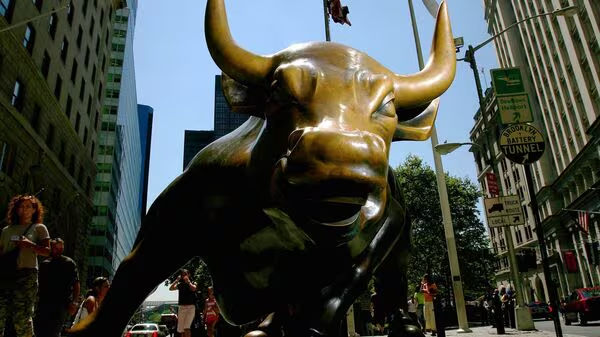
In recent years, the rise of social media has significantly impacted various aspects of our lives, including the financial markets. Platforms like Reddit, Twitter, and TikTok have transformed how information is disseminated and how people interact with the stock market. This phenomenon raises an intriguing question: has socials media fundamentally altered the stock market’s operation, or are we simply witnessing a new chapter in investing?
The Rise of Social Media and Its Influence on Trading
The influence of socials media on stock trading has been growing steadily. Socials media platforms provide a space for individuals to share opinions, news, and investment tips rapidly. The viral spread of information can significantly impact stock prices, as seen in several high-profile cases.
One notable example is the GameStop short squeeze of early 2021. A community on Reddit’s WallStreetBets started buying up shares of GameStop, a struggling video game retailer, which led to a massive increase in its stock price. This phenomenon, driven by socials media, showcased the power of collective action among retail investors and challenged the traditional market dynamics.
Social Media and Market Volatility
Social media’s impact on market volatility is a double-edged sword. On one hand, it allows for rapid dissemination of information, which can be beneficial. On the other hand, it can lead to increased volatility and market instability. The speed at which information spreads can result in exaggerated market reactions, as seen with various meme stocks.
For instance, a single tweet or viral post can lead to sharp, short-term price movements. This can create an environment where prices are driven more by sentiment and socials media trends than by traditional financial metrics. While this can offer opportunities for profit, it also introduces significant risk, as prices can fluctuate wildly based on the latest socials media buzz. ECONOMIST
The Democratization of Investing
Social media has democratized investing by providing access to information and investment strategies that were once reserved for institutional investors. Platforms like Reddit and Twitter have enabled individual investors to collaborate, share insights, and learn from each other. This has leveled the playing field to some extent, giving more people the chance to participate in the stock market.
However, this democratization also comes with challenges. The influx of inexperienced investors, combined with the rapid spread of sometimes misleading information, can lead to poor investment decisions. For example, during the GameStop saga, many investors bought shares based on hype rather than solid financial analysis, leading to significant losses for some.
Regulation and Market Integrity
The rise of social media-driven trading has prompted discussions about the need for new regulations to ensure market integrity. Regulatory bodies like the Securities and Exchange Commission (SEC) are scrutinizing the influence of social media on trading practices and exploring ways to address potential issues.
Regulations may need to adapt to the new landscape of social media-driven trading. For instance, there may be a need for clearer guidelines on the dissemination of financial information and greater transparency regarding market manipulation. Balancing regulation with the need to preserve the free flow of information will be a critical challenge.
The Future of Social Media and Stock Trading
Looking ahead, the role of social media in stock trading is likely to continue evolving. As technology advances and new platforms emerge, the ways in which social media influences the market will also change. It is essential for investors to stay informed about these developments and to approach social media-driven trading with caution.
Investors should be aware of the potential risks associated with trading based on social media trends. While there are opportunities to be had, it is crucial to conduct thorough research and to rely on a combination of sources when making investment decisions. Social media can be a valuable tool, but it should not be the sole basis for trading strategies.
Conclusion
In conclusion, while social media has significantly impacted the stock market, it has not necessarily “broken” it. Instead, it has introduced new dynamics and challenges. The rapid spread of information, increased market volatility, and the democratization of investing are all aspects of this evolving landscape.
As we move forward, it will be important to navigate this new environment carefully, balancing the benefits of social media with the need for informed and prudent investing. By understanding the role of social media in modern trading and adapting accordingly, investors can better position themselves to thrive in this rapidly changing market.
